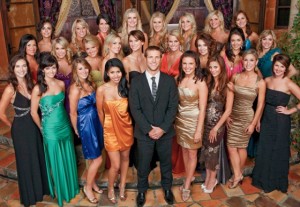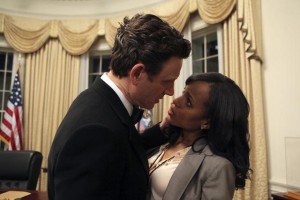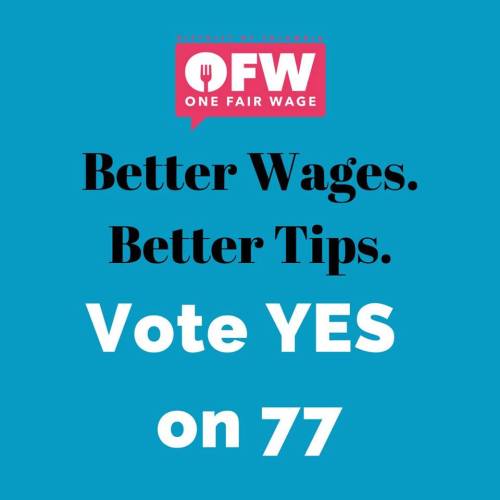
“I’m totally in love with this island and the $40,000 ring — I mean, you.”
The Bachelor. For 25 seasons, millions of viewers have watched a familiar formula of women crying, helicopter rides as first dates, and so many red roses given and ‘I love yous’ exchanged that have, with the exception of three cases, ended in break-ups. The show isn’t exactly a rousing advertisement for the institution of marriage, but rather a venue for many contestants to pursue pseudo-permanent reality television careers and fratty cruise events where they can hook up with other like-minded, shallow people.
Can you tell I’m not a diehard fan? (And yes, I know I enjoy my Housewives. But we all have our contradictions, and I’m living with mine every day, gfs).

Pediatric Dentist Misee Harris campaigns to be the next Bachelorette.
So it may surprise you that I’m actually a big advocate of Misee Harris’ social media campaign to become the first black bachelorette. The pediatric dentist from Tennessee is an absolute knockout who also has a huge heart, given her commitment to mentoring young women and volunteer efforts with children who have autism. She has a precious video of her with her dog, is sweet with her Facebook fans and quotes 2 Chainz. Nuff’ said.

I’m annoying and shady and nobody liked me … was I picked because I’m white? That’s like, totally awesome.
So why the social media campaign? Although Harris applied and was chosen to be a contestant on a previous season of The Bachelor, she ultimately withdrew because she was concerned about ‘being another token.’ Given that all 25 seasons of the franchise have featured white Bachelors and Bachelorettes, and that there have been very few contestants of color, this is totes a valid concern. Here is what bothers me. Misee Harris is pretty much perfect. I mean seriously, how many people do you know who possess all of her exceptional qualities? When you consider some of the other not-so-perfect contestants on the show (Vienna Girardi anyone? Or Brad Womack? OK those were the only seasons I watched, promise ;)), it seems a bit ridiculous for creator Mike Fleiss to make the claim that diverse contestants don’t come forward, and that when they do, it feels a ‘bit forced,’ like ‘tokenism.’

An earth angel, not a token! (photo courtesy of Jaimie Tull of Tull Studios).
First of all, isn’t there an argument to be made that viewers have been ‘forced’ to endure ten years of nearly all-white casts that for many of us, do not reflect the diversity of people we engage with in our daily lives? Also, tokenism in this context would imply that a non-qualified contestant was picked simply because they added diversity. But to dismiss a beautiful, successful, charitable woman because of the color of her skin? How does that constitute anything but systematic racial exclusion? Seriously dude, check out the Wikipedia definition of these terms before you preach such foolishness, fo’ real.

I was SO heart-broken a week ago, but now I’m the new Bachelorette—score!
Furthermore, why is it that the Bachelorette must be a former contestant? Isn’t the formula getting a tad stale? I mean really, every season, it’s the same deal—white woman gets ‘heart broken’ on The Bachelor, sits in Chris Harrison’s hot seat during the reunion show for ten minutes and cries about how she is ‘looking for love’ and has finally moved on from the Bachelor who she fell in love with over those two dates she had with him, only to come back a week later smiling and radiant as she is announced the new Bachelorette. We. get. it.
Now I know there are many peeps out there who will argue that The Bachelor isn’t a show that contestants of color should strive to be on in the first place, and that it might actually demean an accomplished woman like Harris. I have a few responses to this, and I highly recommend that you act out a Snap! as I make each point, so get ready. First of all, regardless of whether or not you think Harris should be on the show doesn’t take away from the fact that Harris wants to be on the show. At the end of the day, she should be granted an equal opportunity, period. Yes I know, she could have been a contestant on The Bachelor and won a chance to become the next Bachelorette, but considering that very few contestants of color have gotten far on previous seasons of the show, the odds of that happening were very much against her. Secondly, The Bachelor is one of television’s most popular franchises that is watched by millions of people religiously and has, like it or not, cultural influence. To give a show an all-inclusive title like ‘The Bachelor’ implies that there are going to be all kinds of contestants on the show, not a whitewashed view of relationships and marriage that as Jezebel put it, “couldn’t be further from reality.” I mean seriously, if Mike Fleiss is going to be so blunt about his reasons for excluding people of color, then he should have named it ‘The White Bachelor.’ Or, ‘The Fratty Bachelor.’ Or even better, ‘The White, Fratty, Straight, Christian Bachelor.’ You know? Keep. It. Real.

A dating show, or white Greek rush event?
Quick side note. Similar criticisms were leveled at Lena Dunham of the show Girls, for featuring an all-white cast in the middle of Brooklyn. And guess what? Dunham admitted that had been an oversight and promptly addressed the lack of diversity in the second season. I love me some self-reflection. LOVE.

Lena figured it out, so why can’t Mike?
Finally, it is precisely this cultural permeability, this accessibility, that can actually make a show like The Bachelor a potentially powerful tool for creating conversations on topics around relationships and some other pretty serious issues. Doubtful? OK, let’s take the example of Sean Lowe’s season, which did feature a fairly diverse group of contestants, including an Iraqi woman named Selma Alameri. Former Bachelorette Ali Fedotowsky took it upon herself to write a blog entry titled “Selma’s boobs, Roller Derby, and Tierra Drama” in which she makes fun of Selma’s cleavage and criticizes her intent to stay true to her mother’s wishes and not kiss Sean on national television.
(Brief aside/rant: There’s nothing I love more than when someone like Ali, who has reaped the benefits from The Bachelor for all the reasons mentioned above, takes an opportunity to shame a woman of color’s body on a public forum as well as provide ‘cutting-edge’ cultural criticism. No really, it’s like, my favorite thing ever. She should totes come back for another season of The Bachelorette, cause last I checked, season one didn’t work out too great. Oh no. I. didn’t. Oh yes I did! Snap!).
Aside over. When reading the comments in the article below, there was definitely quite a bit of backlash against Ali for, as one person put it, “discussing other cultures in a blog when you don’t know anything about that culture.” Then one person responded to that comment by asking,
Maybe you can help explain why this point of view is wrong. To those who don’t know much about/understand these cultures, Selma is a bit confusing. Where do we draw the line of modesty on national television? I don’t know much about the Muslim faith myself, but I was under the impression that women were supposed to dress more modestly, abstain from drinking alcohol, and not be spooning and caressing on national television. What makes kissing so taboo in relativity to those other things?
Then over at Reality Steve, the blogger who posts spoilers every season, someone responded to his comments calling Selma a ‘tease’ for dressing sexy but not ‘putting out’ by noting,
I take MAJOR issues with you going on and on about how Selma dresses sexy and thus she was a ‘cock tease’ for not putting out with Sean. Wow Steve, so if a woman dresses sexy, she has to put out? That’s how rape culture is perpetuated, FYI.

Who knew a date between Iraqi-born Selma Alameri and Bachelor Sean Lowe would provoke cultural conversations?
This is why I think pop culture shows can be so awesome, because they can facilitate important conversations on issues like culture and gender that need to be had, just by the nature of their accessibility. While the diversity of blogs in the blogosphere is exciting, there is a potential that certain communities which cater to specific topics will only pull in the interested and invested, ultimately preaching to the choir. I love the idea that having a diverse group of contestants on a show that so many people watch might provoke questions and spark conversations on cultures that are different from theirs in a way that they might not normally engage with. I mean seriously, I love that someone might actually learn something, or at the very least, be inspired to learn, about the Islamic faith after watching an episode where two people go on a date, climb a rock, and toast marshmallows over a campfire. Furthermore, as this blogger put it,
Such a show would inherently promote the idea that black women are desirable. It disrupts the cultural narratives in media—that some see as propaganda—promoting the expectation that African-American women should be perpetually single. It de-emphasizes the standard of a white, fair-haired woman as the epitome of female beauty and worthiness, a standard which fuels billions of dollars in sales of hair dye, hair extensions, and skin-bleaching creams globally. This beauty ideal also contributes to the absence of black women from the ranks of the highest paid models and actresses, where our form of beauty tends to be an occasional exotic trend rather than embraced as an everyday normality.

Scandal proves we’re reading for a romantically attractive black leading lady.
As she further points out, it is not like Americans aren’t interested in high-profile relationships involving black women, including those of Beyonce and Jay Z, Jada Pinkett-Smith and Will Smith, and of course, Michelle and Barack Obama. Seriously, if Americans are ready for a relationship between two black people in the White House, then why can’t they watch a black woman date on a show that isn’t just comical (read: Flavor of Love)? And if Mike Fleiss is so concerned about ratings, perhaps he should look to the show Scandal, which features an affair between a powerful black broker played by Kerry Washington and a white president that is bringing in eight million viewers an episode.
Pop culture visibility matters, and Misee Harris deserves to be part of it. If she were chosen I would totes watch, and it’s not just because she’s black. It is because she is a professional, talented woman who would add interest due to the nature of her accomplishments. That being said, picking a diverse roster of candidates for her would also add a lot of interest, and it would probably get people talking. And that’s a good thing, right girlfriends?
Want to show Misee some love and support? Check out her Facebook page and her twitter account, and tweet Mike Fleiss @fleissmeister letting him know you want @miseeharris as the next #bachelorette!
And check out this Huff Po live interview with Misee!
An abridged version of this article is now on The Huffington Post.














